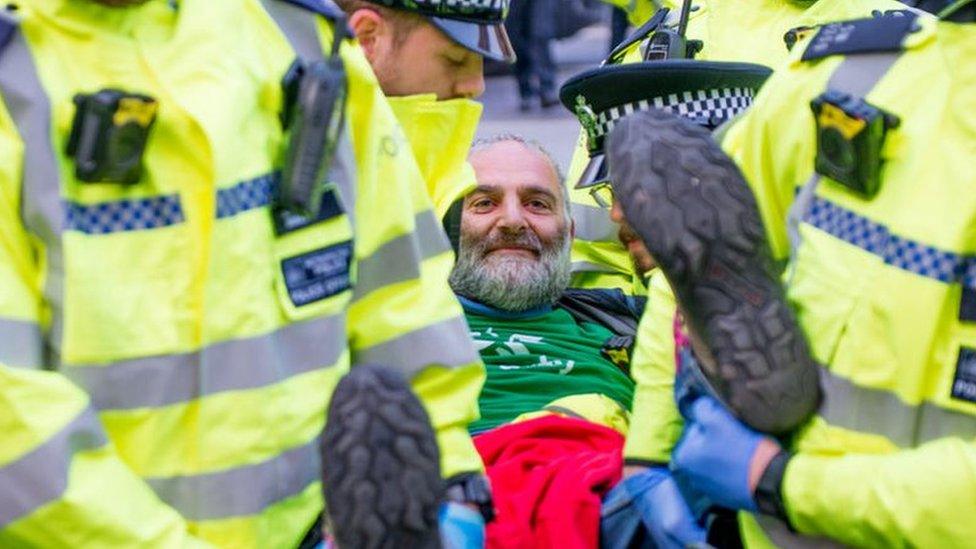Arrests as Extinction Rebellion protests begin across England
- Published
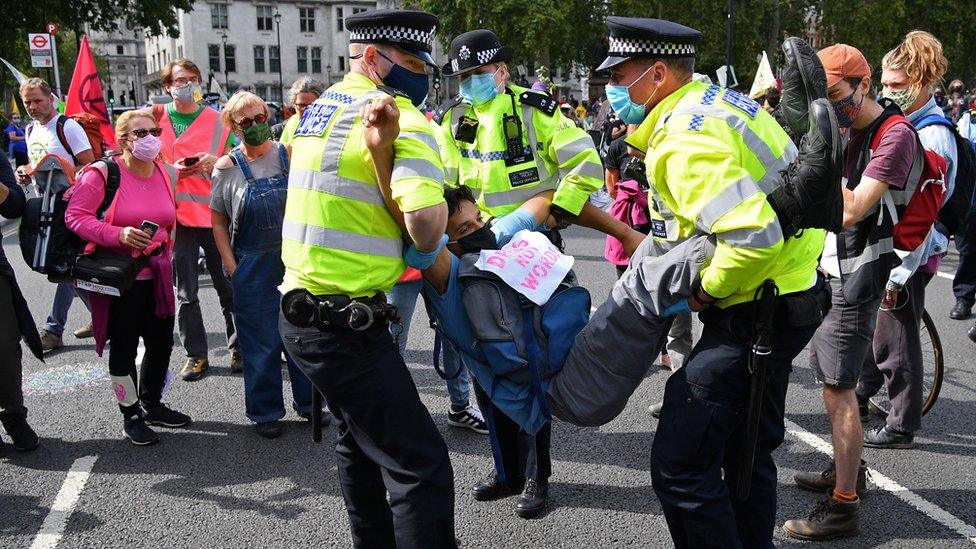
Extinction Rebellion said it planned to "peacefully disrupt" Parliament with 10 days of demonstrations
At least 90 people have been arrested at climate change protests causing disruption across England.
Extinction Rebellion organised action in London and Manchester to urge the government to prepare for a "climate crisis".
Campaigners were arrested after they sat in the middle of the road next to Parliament Square to stop traffic.
In Manchester, protesters have been urged to "reconsider their actions" following a rise in Covid-19 cases.
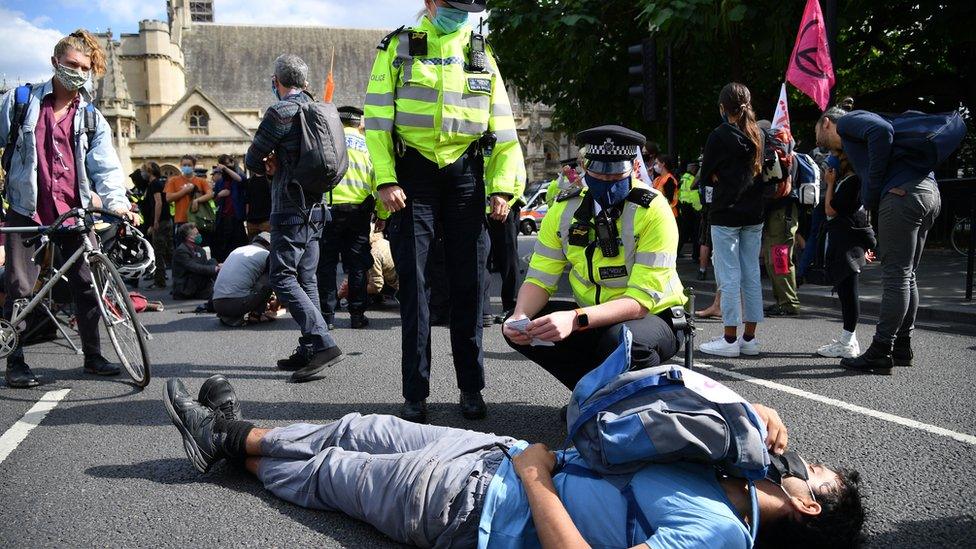
The Met said the protests could result in "serious disruption" to businesses and commuters
Extinction Rebellion said it planned to "peacefully disrupt the UK Parliament in London" with 10 days of demonstrations until MPs backed the Climate and Ecological Emergency Bill.
Other planned events in the capital include a "carnival of corruption", which is due to take place outside the Treasury, and a "walk of shame" near the Bank of England.
Protester Karen Wildin, a 56-year-old tutor from Leicester, said: "I'm here today because I have serious concerns about the future of the planet - we need to put this above anything else.
"Never mind Covid, never mind A-levels, this is the biggest crisis facing us and we need to raise the message as loudly as possible.
"Not a lot has been done on this issue, everyone needs to hear the message."
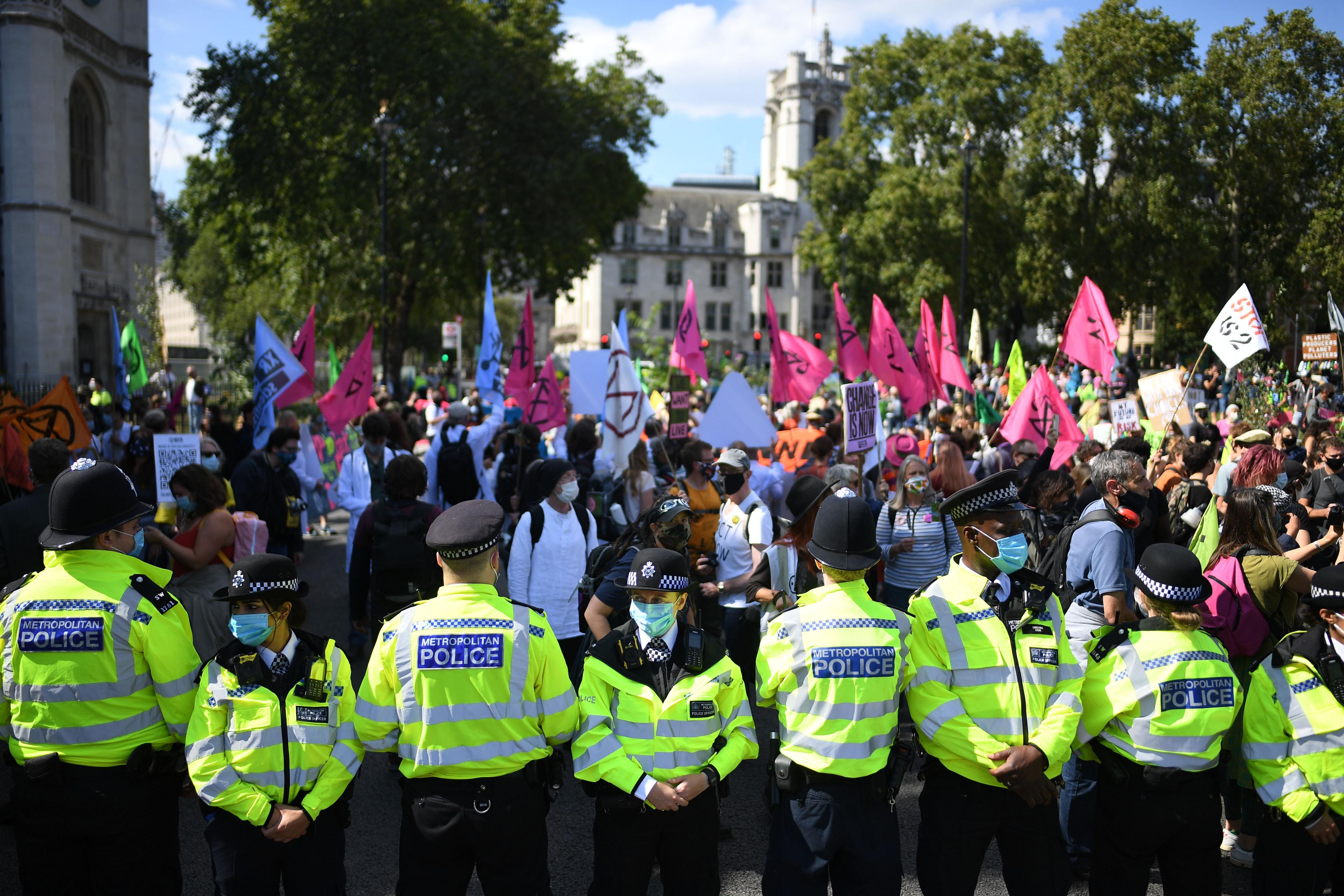
Events across England were timed for the return of MPs from the summer holiday
Sarah Lunnon, a member of Extinction Rebellion, said: "The failure to act on this issue will have a catastrophic impact on the future of us and the generations to come.
"We want to occupy Parliament Square to make our voices heard. Of course we're in the middle of a pandemic but we're balancing the risk, this is the biggest issue facing us."
The Metropolitan Police said Tuesday's gathering could only take place off the main roads at Parliament Square Gardens between 08:00 BST and 19:00. Boats, vehicles, trailers or other structures were banned from the procession.
The same rules apply for Wednesday's demonstrations.
The Met said as of 18:00 Tuesday a total of 90 people had been arrested on suspicion of public order offences.
Footage posted online by Extinction Rebellion appeared to show John Lynes, a demonstrator in his 90s, being led away by police near Parliament Square while walking with a stick.
Mr Lynes, from St Leonards-on-Sea in East Sussex, has joined previous protests organised by the group.
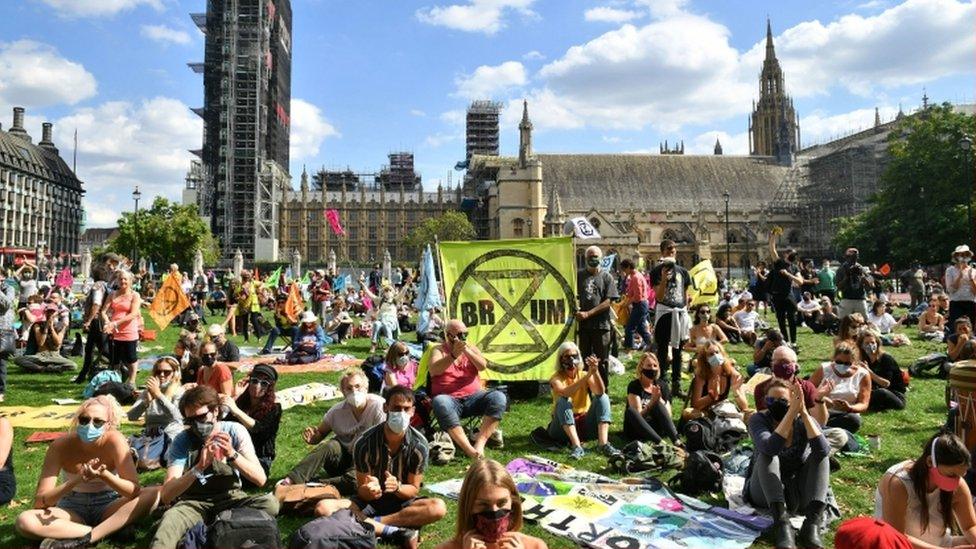
Protesters gathered in Westminster to urge the government to prepare for a "climate crisis"
Met Commander Jane Connors said: "The reason we have implemented these conditions is that we know these protests may result in serious disruption to local businesses, commuters and our communities and residents, which I will not tolerate."
Last year, more than 1,700 arrests were made during Extinction Rebellion's 10-day Autumn Uprising.
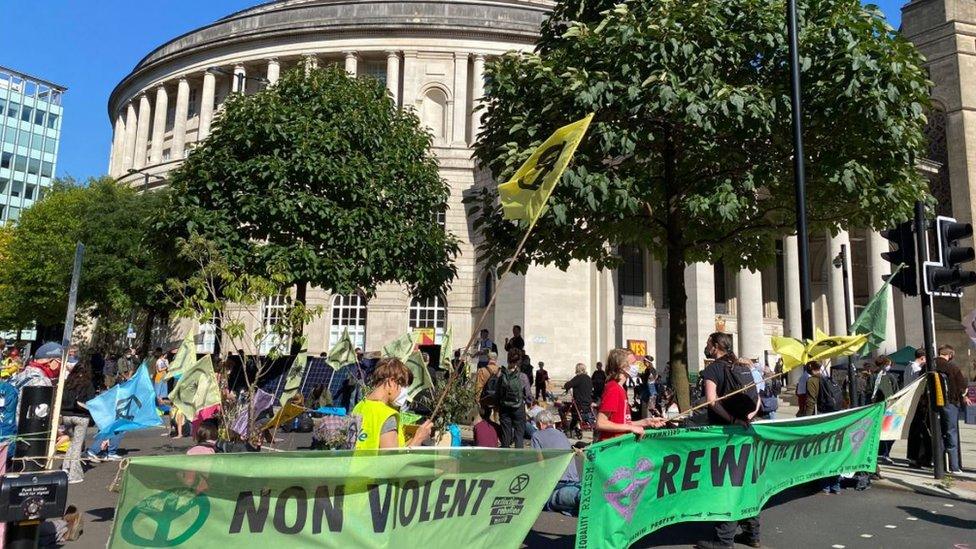
Protesters gathered outside Manchester Central Library at 10:00
In Manchester, a march is planned through the city and Oxford Street has been closed as part of five days of action.
City council deputy leader Nigel Murphy said planned demonstrations "cannot adhere" to social distancing rules.
The city has increased restrictions due to a recent rise in Covid-19 cases.
Mr Murphy said while the council respected "the right to peaceful protest" this should "not be at the expense of local people".
He said: "We are in the midst of a global public health crisis and we would ask demonstrators to seriously reconsider their actions at the current time.
"Manchester is currently under increased restrictions to limit the spread of the virus because the number of cases has been rising. Gatherings larger than six should only take place if everyone is exclusively from two households or support bubbles."
He said the city had one of the "most ambitious carbon targets in the UK" and was "working to become zero carbon by 2038".
A Titanic-themed demonstration was also held in in Southend-on-Sea where protesters said much of Essex would be underwater by 2050
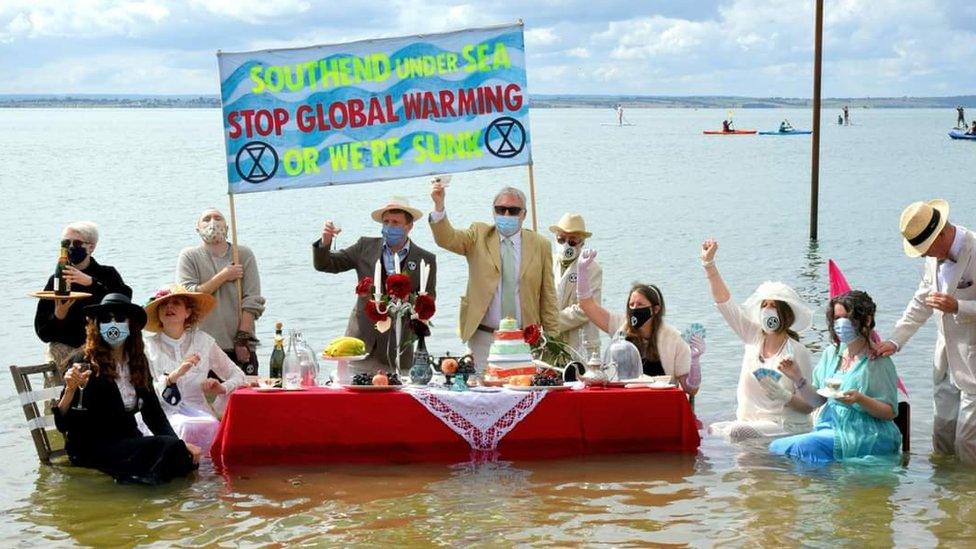
A Titanic-themed demonstration was held in Southend-on-Sea
- Published26 August 2020
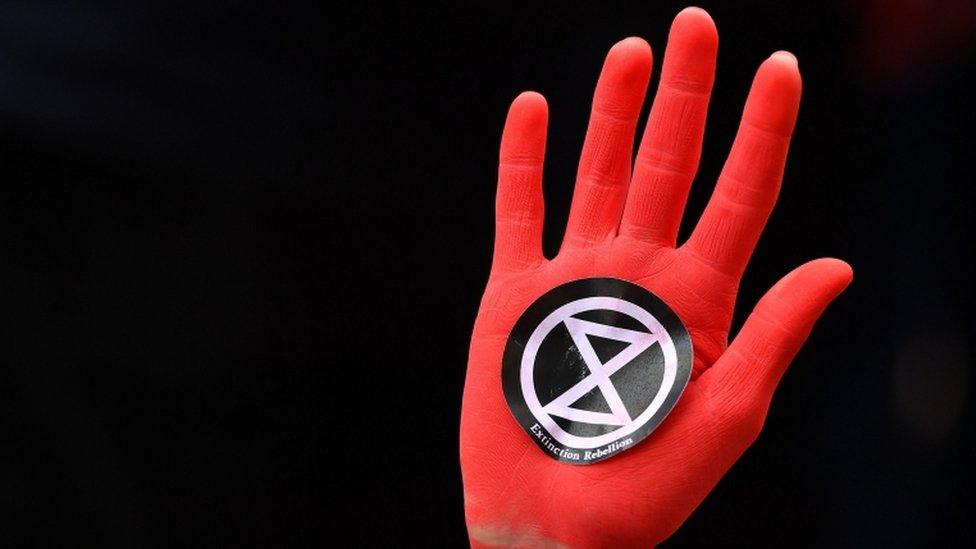
- Published28 August 2020
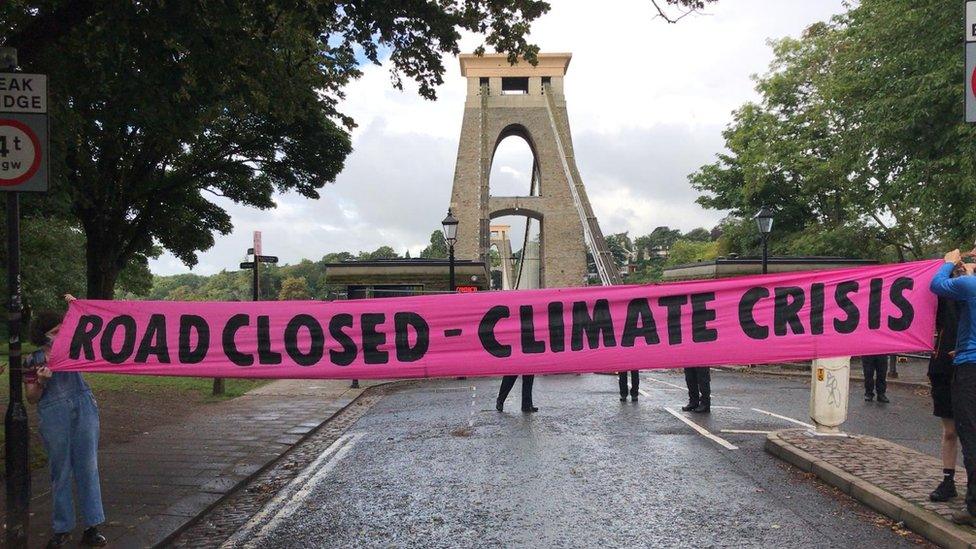
- Published14 April 2022
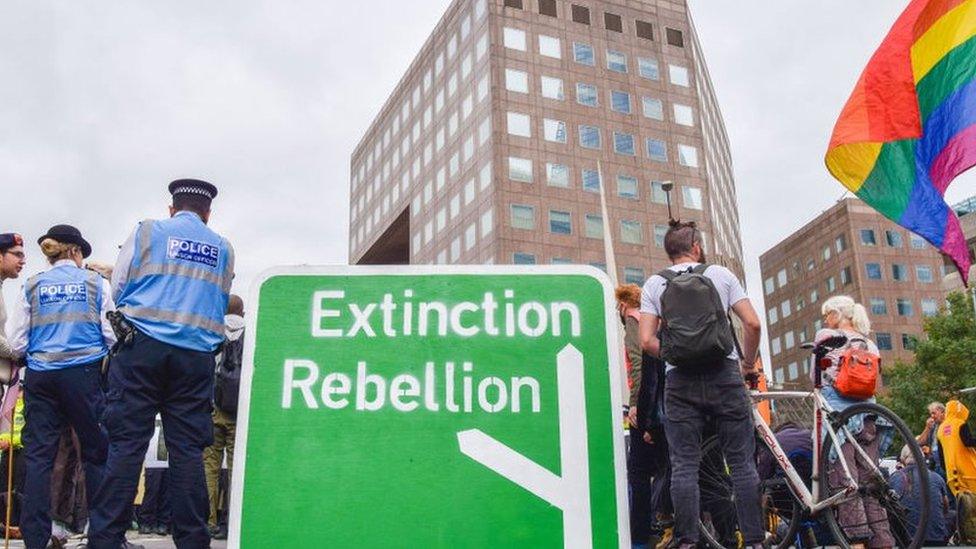
- Published19 April 2019
